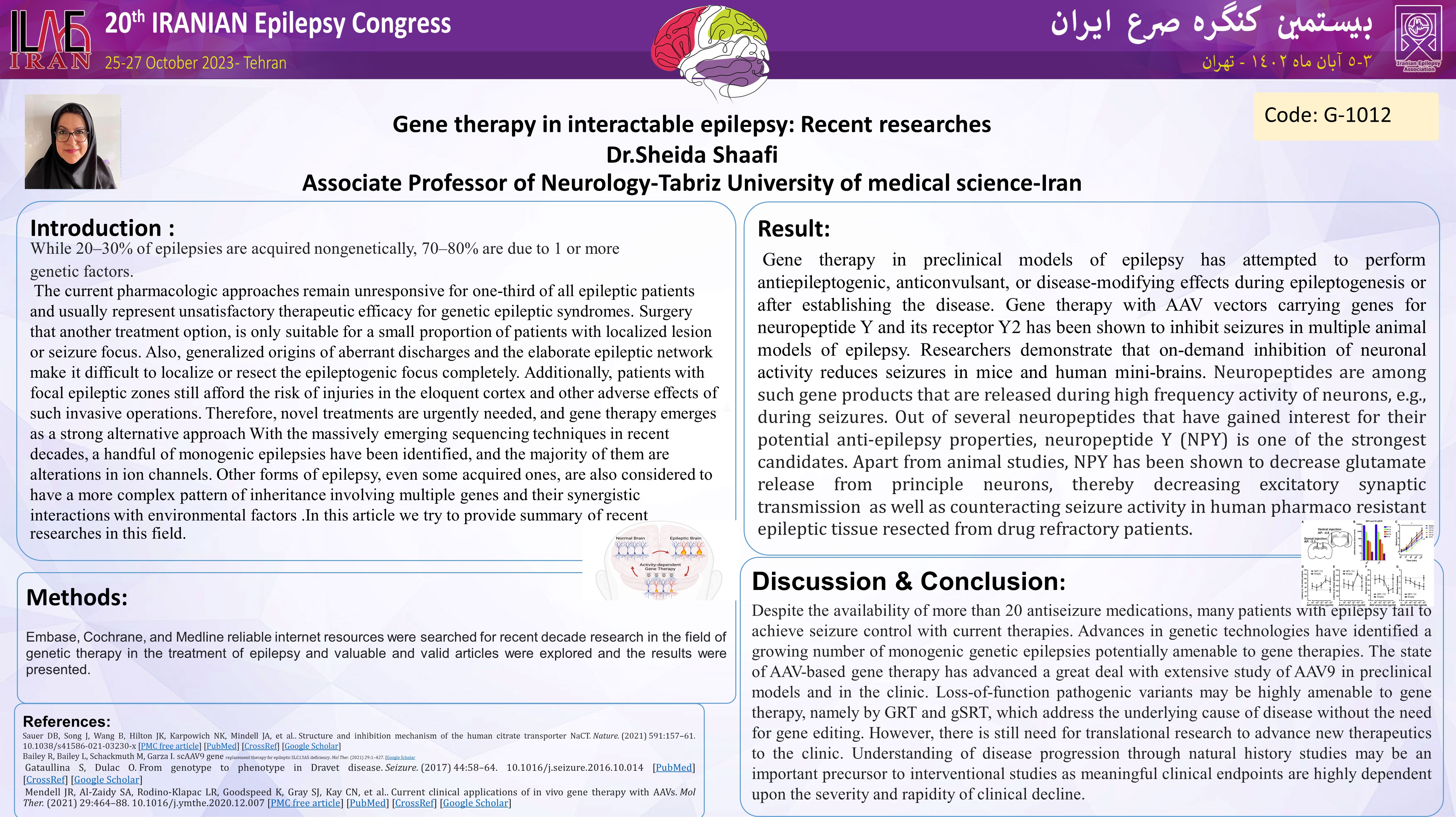Gene therapy in interactable epilepsy: Recent researches
کد: G-1012
نویسندگان: شیدا شعفی © ℗
زمان بندی: زمان بندی نشده!
دانلود: دانلود پوستر
خلاصه مقاله:
خلاصه مقاله
Introduction: Epilepsy, a common neurological disorder, remains poorly understood in approximately 75% of patients, previously categorized as 'idiopathic' or attributed in part to genetic factors. Current pharmacological treatments fall short for about one-third of epilepsy patients, especially those with genetic epileptic syndromes, often yielding unsatisfactory outcomes. Surgical interventions, effective for a select group with localized lesions or identifiable seizure foci, face limitations due to the widespread origin of abnormal brain activity and intricate epileptic networks. Even patients with focal epileptic zones face potential risks, including injuries to vital brain regions during invasive procedures. Therefore, innovative treatments are urgently needed, with gene therapy emerging as a promising alternative. Advances in sequencing techniques over recent decades have identified several monogenic epilepsies, many involving ion channel alterations. Additionally, some epilepsy forms, including certain acquired types, are thought to have complex inheritance patterns influenced by multiple genes and their interactions with environmental factors. In this article, we provide a comprehensive overview of recent research in this field. Methods: We conducted an exhaustive search of Medline, Embase, and Cochrane databases for studies published within the last decade. Results: Recent research in gene therapy for epilepsy explores various approaches, aiming to achieve antiepileptogenic, anticonvulsant, or disease-modifying effects, both during epileptogenesis and after disease onset. Notably, gene therapy employing AAV vectors carrying genes for neuropeptide Y and its Y2 receptor has shown efficacy in suppressing seizures across multiple animal models of epilepsy. Studies have also demonstrated the potential of on-demand inhibition of neuronal activity in reducing seizures in both mice and human mini-brains. Conclusion: Gene therapy presents a promising alternative to traditional pharmacotherapy and surgical interventions for refractory epilepsy. Therapeutic cargos may encompass genes encoding neuropeptides, neurotrophic factors, channel proteins, receptors, and more. Additionally, emerging therapeutic strategies, such as gene editing, optogenetics, and chemogenetics, offer further potential for advancements in epilepsy treatment. Keywords: Gene therapy, intractable epilepsy, seizures, epileptogenesis, neurotrophic factors, ion channels, gene editing, optogenetics, chemogenetics.
دیدگاه ها (0)
ارسال یک دیدگاه
ارسال دیدگاه توسط مدیریت بسته شده است.
